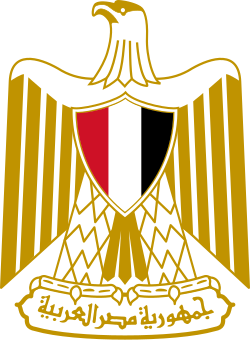| |||||||||||||||||
| Registered | 23,934,907 | ||||||||||||||||
|---|---|---|---|---|---|---|---|---|---|---|---|---|---|---|---|---|---|
| Turnout | 79.21% | ||||||||||||||||
| |||||||||||||||||
| |||||||||||||||||
 |
|---|
Contents |
| Constitution (history) |
| Administrative divisions |
| Political parties (former) |
Presidential elections were held in Egypt on 26 September 1999. The vote took the form of a referendum on the candidacy of Hosni Mubarak after he was nominated for the post by the People's Assembly. Mubarak was supported by all four main opposition parties, with the exception of the Nasserist Party. [1]
His candidacy was approved by 94% of voters, with voter turnout reported to be 79%. [1]
